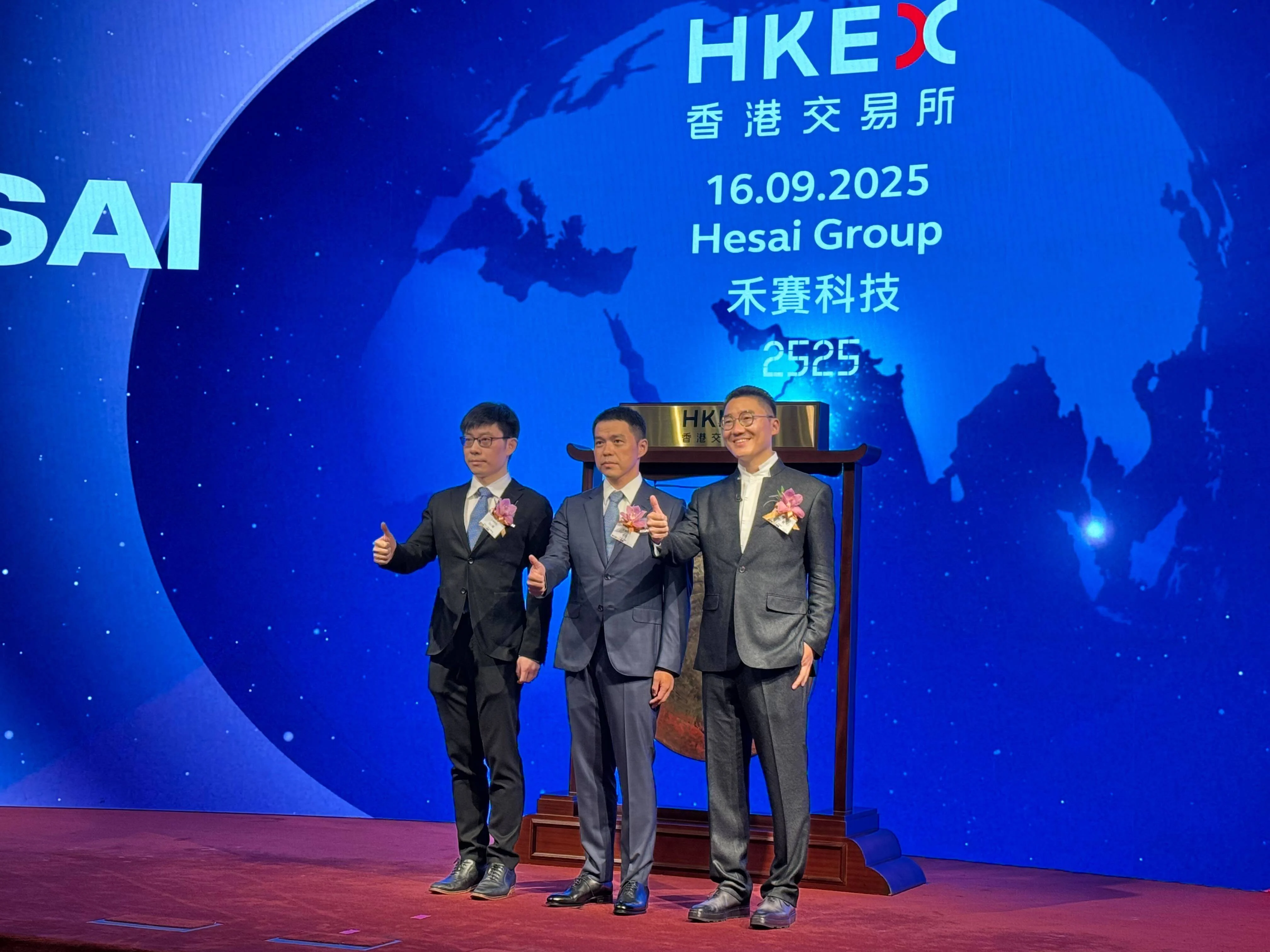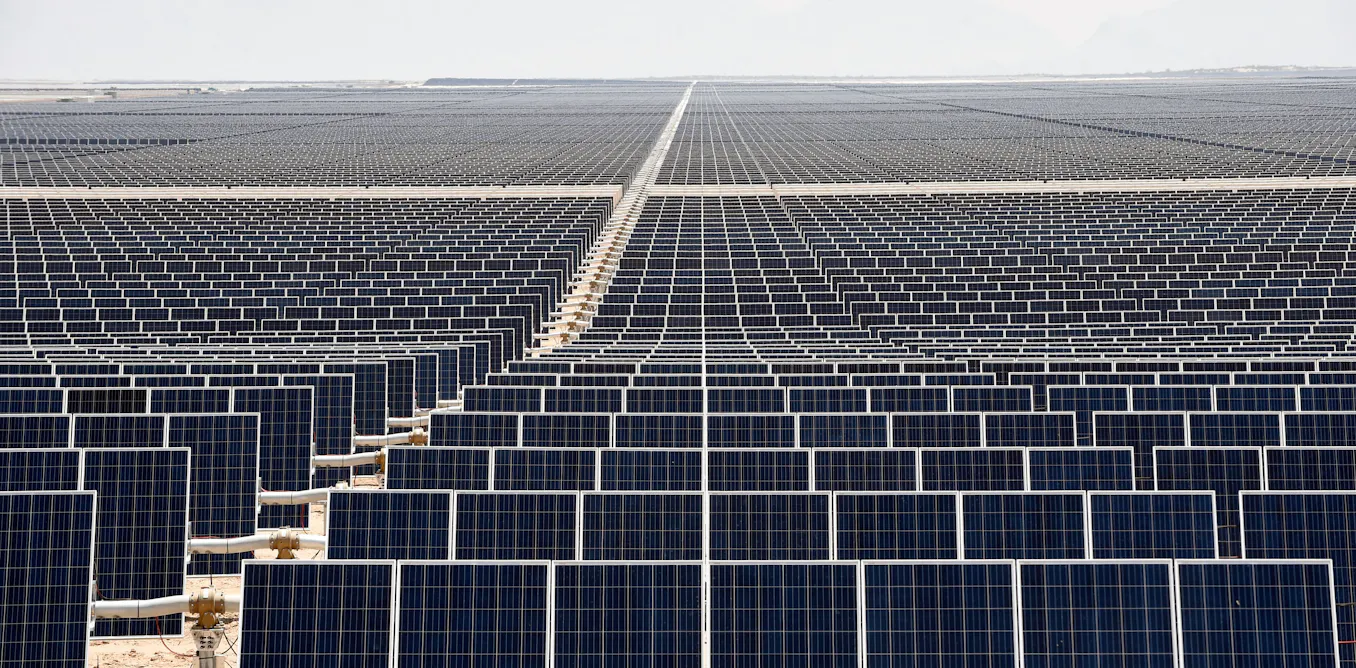By Julie Zhang
Copyright scmp

Shares of Hesai Group, the world’s largest supplier of lidar sensors, rose in their Hong Kong debut on Tuesday as investors tapped into the offering amid a slew of blockbuster deals in the city’s listing pipeline.
Trading under the code 2525, Hesai’s shares opened at HK$229.20, a premium of 7.7 per cent to the offer price of HK$212.80 per share.
The company sold 19.55 million shares, including 2.55 million shares through the full exercise of the offer size adjustment option, raising about HK$4.16 billion (US$531 million) from its secondary listing. About 90 per cent was allocated to international entities and the remainder was offered to Hong Kong retail investors.
The public tranche was nearly 168.65 times oversubscribed, while the international tranche drew demand of about 14.09 times the available shares.
The deal attracted six cornerstone investors, including HHLR Advisors, Taikang Life and WT Asset Management, who subscribed to US$148 million worth of shares and agreed to hold them for at least six months after the listing.
Among lidar suppliers, the company has been the top global generator of revenue for three years running, from 2022 to 2024.
On Monday, the company said it would expand its production agreement with a US-based robotaxi company. It is expected to act as the exclusive supplier of both long-range and short-range lidars. The deal, valued at more than US$40 million, covers deliveries through the end of 2026.
The company’s Nasdaq-listed shares closed more than 2 per cent higher at US$28.57 on Monday.
“We are grateful to our powerful motherland for granting us the right to choose, and thankful to the Hong Kong stock exchange for its support in providing us the opportunity to showcase ourselves in Hong Kong’s trading market,” said co-founder and chief scientist Sun Kai before striking the ceremonial gong.
Hesai is among many Chinese firms facing heightened pressure amid ongoing US-China tensions. Last year, the US Department of Defense designated it a “Chinese Military Company”. In January, Hesai said it did not sell products to the military or maintain any military ties with any country.
It is also one of the nearly 300 Chinese companies listed in the US that have faced renewed delisting risks in the second term of US President Donald Trump.
“The fourth industrial revolution, with AI as its new foundational element, has quietly arrived,” Sun said, adding that by 2035, people would no longer see Hesai “merely as a lidar company, but as a comprehensive technology company empowering the fourth industrial revolution”.
Founded in 2014 in Shanghai, Hesai develops and sells lidar (light detection and ranging) sensors, which measure distances to objects, with use in autonomous vehicles, advanced driver-assistance systems and robotics.
Its clients include China’s top electric vehicle makers, Li Auto and Geely, along with self-driving technology companies like WeRide and Pony.ai.
One of its co-founders, Sun Kai, controls 34.18 per cent of the shares after listing, while co-founders Li Yifan and Xiang Shaoqing hold 32.89 per cent and 32.93 per cent, respectively.
International Capital Corporation, Guotai Junan International and CMB International Capital served as joint sponsors.
Hesai said it would allocate about 50 per cent of the deal’s net proceeds to research and development, with 35 per cent going to expanding manufacturing capabilities, while the remainder would be spent on business expansion, working capital and general corporate purposes.
The market capitalisation of Hong Kong-listed companies in the new energy and electric vehicle sectors has surged sixfold over the past decade to US$806 billion, accounting for 13 per cent of the total market, according to the Hong Kong government.
In Hong Kong’s coming IPO pipeline, Zijin Gold International is reportedly targeting a fundraising of US$3 billion, which could make it the city’s second-largest offering this year. Chery Automobile, which is expected to list in the third quarter, is said to be aiming for about US$1.5 billion, according to Bloomberg. GenFleet Therapeutics, meanwhile, plans to raise up to HK$1.58 billion.



